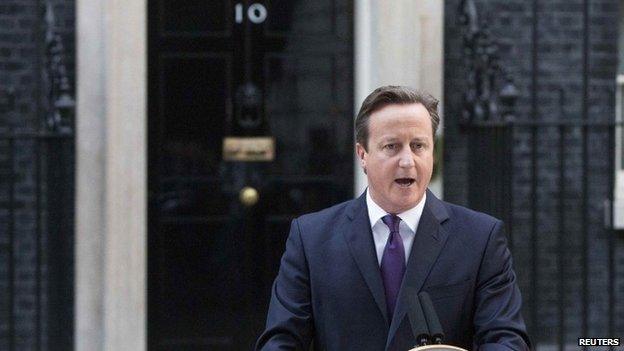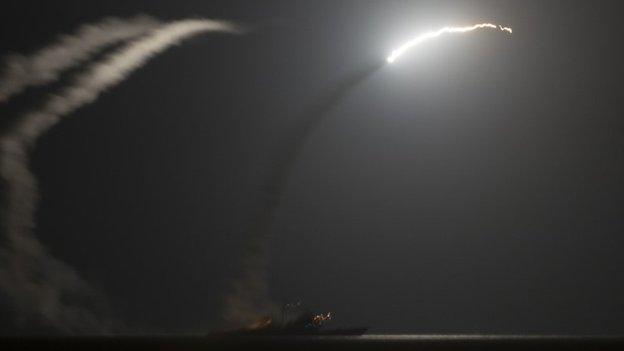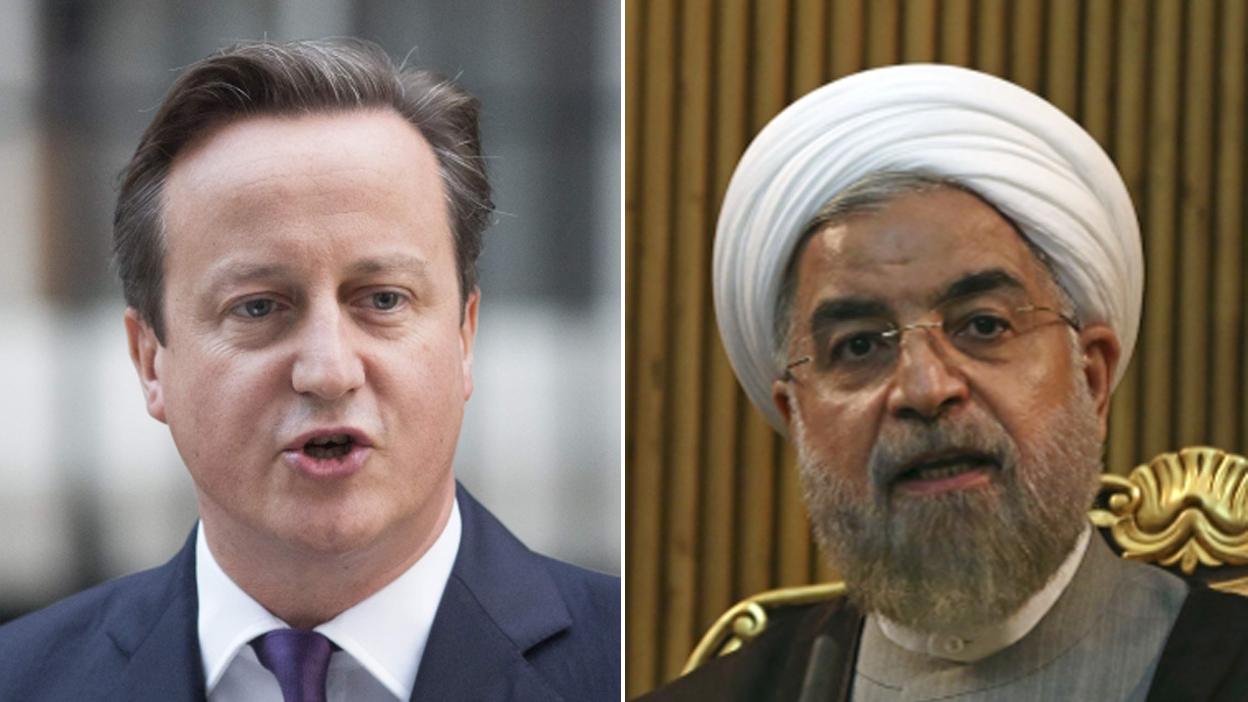Will the UK join military action against Islamic State?
- Published

Downing Street officials held talks with Labour counterparts last week
One thing and one thing alone will determine whether the UK joins the United States in taking military action against Islamic State forces - parliamentary opinion.
David Cameron will not risk a repeat of the Commons defeat he faced last summer over air strikes in response to Syrian President Bashar al-Assad's use of chemical weapons.
That is the reason that the US has, so far at least, had military support from Arab partners but not the UK for its attacks in Syria, and of the French air force, but not the RAF, for attacks in Iraq.
If you read or hear that "no formal request has been received for British involvement in military action against Islamic State" ignore it. It's meaningless.
There will never be a formal request from the United States that the White House does not already know will be agreed to by Downing Street.
Special relationship
The US does not need British involvement. Militarily, our contribution would be pretty insignificant. Diplomatically, America already has a broad coalition including partners in the region.
Politically, however, President Obama would, of course, welcome the backing of the UK. What's more, there will be generals, diplomats and politicians on both sides of the Atlantic worrying about the future of the special relationship if Britain sits out this conflict.
The prime minister has made it clear that he thinks there is both a moral and a legal case for air strikes in both Iraq and Syria. What he is waiting for is a clear sign of support from three groups - his backbenchers, his Lib Dem coalition partners and, crucially, Labour.
All sides have said that the issues this year are different from those which scuppered agreement last year.
Public opinion seems to be in agreement. A recent YouGov poll showed majority support - 52% - for RAF involvement in the skies above both Iraq and Syria. Just last month - before the video of a British hostage being beheaded by IS forces - that figure was at 37%.
The key player is the Labour leader who opposed action last year having initially signalled his support. David Cameron has never forgiven Ed Miliband for that change of mind.
Tests for action
Mr Miliband, who secured his party's leadership by spelling out his opposition to the invasion of Iraq in 2003, insists that he simply applied three rational tests before approving further military action - Is it legal? Is it part of a plan? Is there a plan for the aftermath?
It is easy to see how those tests could be passed in Iraq. A request by the Iraqi government would give legal cover to airstrikes and the plan would be to stabilise the new inclusive administration in Baghdad.
Syria poses more problems - would strikes without the express support of President Assad be legal? Besides, are they designed to help Assad or help his opponents in the "moderate" opposition? If strikes give the Syrian regime the upper hand in that country's bloody civil war would that be regarded as a strategic success or a failure?
At the end of last week senior officials from Ed Miliband's office were called into Downing Street for discussions. The possibility of a recall of the House of Commons this Friday was discussed. That was before last night's strikes on Syria.
Standby for a call today from David Cameron in New York to Ed Miliband in Manchester once, that is, the Labour leader has delivered his big conference speech and the PM is out of bed.
- Published23 September 2014

- Published23 September 2014

- Published11 August 2014

- Published22 September 2014
